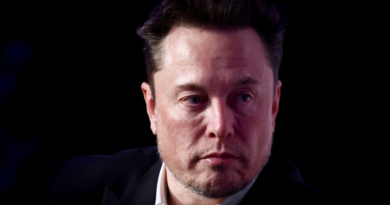The topsy turvy economy just found a new set of boosters—CEOs. 87% are confident in the U.S.’s growth prospects, KPMG survey
After years of uncertainty facing the economy, from the pandemic to supply chain challenges to multiple wars, America’s CEOs feel confident in the country’s economy.
“If I think about it in weather terms it’s been hazy or cloudy for the last 18 months,” KPMG U.S. CEO Paul Knopp told Fortune in an interview. “I think we’re starting to see breaks in the clouds, more growth is coming into view.”
And chief executives are basking in the sunshine, overjoyed to be out from under the black clouds of economic uncertainty. That’s not to say the world isn’t without any turmoil at the moment. Looming in the background now, are the volatile thunder clouds of a murky geopolitical future, according to Knopp. From Kyiv to Jerusalem to back home in Washington D.C. wars and monumental elections risk throwing the carefully balanced economic climate back into chaos.
Still though CEOs were undeterred in their sunny outlooks.
Eighty-seven percent of CEOs surveyed in KPMG’s annual CEO Outlook Pulse Survey said they feel confident about the U.S. economy. The survey featured responses from 100 CEOs from companies with at least $500 million in revenue and 70% of which had at least $1 billion.
Much of their confidence came from feeling that they were no longer in the midst of perpetually uncertain times. A level of newfound stability helps CEOs better plan for the future. The labor market has loosened, inflation has come down, and the interest rate environment appeared settled—or, at least, it did until this week. A third disappointing inflation report in a row to start the year threw into question the timing and likelihood of interest rate cuts. Still, certainly the pandemic and supply chain snarls appear behind the business world.
“It really allows for a clearer view of what the future might look like, which gives us real optimism around future growth prospects for the U.S. economy and hopefully for the global economy,” Knopp said.
Trust in the U.S. economy among CEOs was so high that it even outpaced the confidence they had in their own companies. Some 78% of CEOs said they were confident in the growth prospects for their own companies, according to the survey, which was nine percentage points lower than the share of CEOs who expressed faith in the U.S. economy. Knopp says they “both are really high levels of confidence.”
The discrepancy is likely evidence of how companies are still waiting for the full effect of the U.S. economy’s strength to manifest in their own businesses, Knopp says. Ultimately the two go hand-in-hand, as business leaders realize that a strong macro environment lifts all boats. Over the course of the last year the U.S. economy has proven to be extraordinarily resilient. It’s defying countless economist projections and doomsaying that a recession was imminent and it is backed by an American consumer force that just kept spending. In the month of February, consumer spending rose 0.8%, the largest monthly gain in more than a year.
Resilient consumers can thank a gangbusters labor market that kept people gainfully employed and earning the paycheck they so willfully spent to prop up the economy. Now that they feel good about the economy, most CEOs expect to go on a hiring spree over the next year. Seventy-two percent of CEOs said they expect their organization’s headcount to increase, while only 4% said they’ll lay people off, according to KPMG’s study. Knopp said there is “clearly a connection” between confidence in the economy and plans to hire more employees. In large part because companies have already had to deal with difficulties of the Great Resignation in 2021 and faced the headache of trying to hire when unemployment was at historic lows in 2022. Now they want to be ready in case they run into a similarly tight market in the future. Currently unemployment sits at 3.8%.
The promising job market finds itself intersecting with perhaps the hottest business trend: AI. To cover themselves in the case of another impossibly difficult recruiting period like the one they faced in 2021 and 2022, 69% of companies say they’re leveraging generative AI to fill gaps they see in their workforce, according to KPMG’s survey.
A geopolitical wet blanket on CEO confidence
Disrupting the gravy train executives are on is the rising threat posed by global geopolitics, which Knopp says is “clearly” the disruption of the current economic moment. It poses the uncertainty many executives are so eager to avoid. It’s unclear how long the war in Ukraine will continue and if it will continue to affect the world’s energy supplies. The ongoing conflicts in the Middle East could spread, especially after Israel killed two Iranian generals in Damascus. Even at its current scale the issue affected global supply chains, clogging many Red Sea shipping lanes, exacerbating the supply problems much of the world had thought was behind them.
“We have to watch geopolitical turmoil very closely,” Knopp says. “The fear is that it could expand or become more contagious across the world and, of course, we hope it does not.”
Even countries that aren’t plagued by wars have some political uncertainty in the form of elections. This year the world should see elections in countries that represent about 60% of its GDP. In the U.S., the November election between former President Donald Trump and President Joe Biden is expected to be hotly contested. According to the survey, 62% of CEOs said their company is planning to wait until after the U.S. election for any major M&A deals or capital expenditures. But even that will be a blip for CEO confidence.
“M&A and capital activity will continue; it will just probably be a little bit more muted until the election is over,” Knopp says. “But from a longer-term perspective, I don’t think we have a lot to worry about.”




